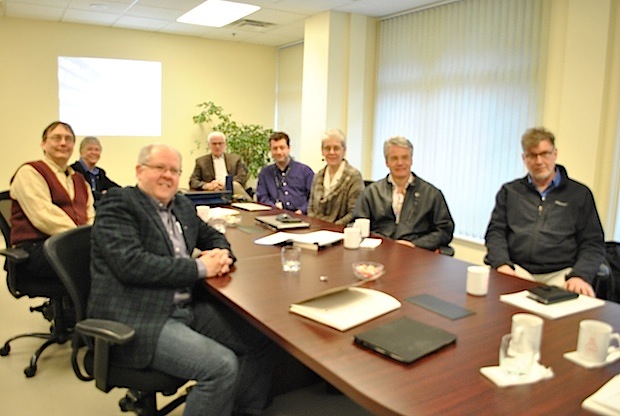The Anglican Church of Canada’s recently formed Commission on the Marriage Canon wants to know what you think about changing canon law to permit same-sex couples to marry in the church. To make submissions, you have to be member of the ACoC (I feel so excluded) so, if you are, let them know what you think. Apparently, they are obligated to publish all submissions as long as they don’t contain anything “objectionable”; I’m sure no one reading this would say anything objectionable.
I am reasonably certain of two things: 1) it’s going to happen no matter what anyone says; 2) thousands of words will be penned in an effort to obscure the truth of 1).
If I were of a cynical disposition, I might make the point that by submitting opinions that run contrary to the inevitable, you will merely be granting the commission the smug satisfaction of employing the well rehearsed strategy of declaring that they listened to diverse opinions – before ignoring those they didn’t like.
Submissions are made by filling out the form here.
From here:
Input from members of the Anglican Church of Canada is vital as the church enters this time of discernment. Commission chair, Canon Robert Falby, encourages broad participation in this process. “Commission members are aware of the strong feelings that many Anglicans have on the issues which it is looking at and we hope that we will receive input which reflects that spectrum.”
Submissions are welcome in both written and video form and must include the author’s name, parish or institution, diocese, and contact details. All of the commissioners will read or view each submission as they prepare their report.
The terms of reference for the Commission on the Marriage Canon require that all submissions to the Commission be posted on the national church’s website (www.anglican.ca). They will be reviewed prior to posting on the national church’s website. Submissions failing to conform to the Anglican Church of Canada’s existing code of conduct for online contributions will not be posted. Those making such submissions will be contacted and invited to revise their content accordingly.


 In a few weeks, the Anglican Church of Canada’s commission on the marriage canon will invite Anglicans in Canada and across the Communion, as well church ecumenical partners, to offer their views about changing the marriage canon (church law) to allow same-sex marriage.
In a few weeks, the Anglican Church of Canada’s commission on the marriage canon will invite Anglicans in Canada and across the Communion, as well church ecumenical partners, to offer their views about changing the marriage canon (church law) to allow same-sex marriage.